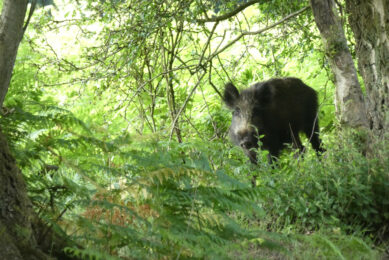Silence
2011 has been the year of the presentations for me. For some reason, all happened in Belgium. It was a challenge to do and share some thoughts with a scientific agricultural audience – and to exchange ideas about how media and livestock production should go together.
2011’s final presentation I gave last Friday, at the Institute for Agricultural and Fisheries Research (ILVO) in Melle, Belgium.
I have been trying to tell my audience of scientists and researchers that the press is not something to worry about. To encourage that, I wanted to tell how the press are working… Searching for those things that are different, searching for the relevant developments and also always on the lookout for facts hitherto unknown.
In addition, many readers of newspapers, watchers of television and those curious on the Web, like to know more about animals too. So in my opinion, there is a world to win for the world of livestock production, just by getting out there and saying what there is to say.
I told them that they should sometimes take into account that there may be disappointments. Unlike scientists, writing to document, journalists write to be read. This means that in their attempt to bring news, journalists may cut away nuance, find different angles or simplify complex researches – to enhance readability.
Several questions I got after the presentation were related to this area of potential controversy. Many of the scientists felt they had in the past been forced by journalists to state an opinion about something, after which this was published in the media, leaving out the context they felt that was needed to be added – and causing ‘damage’. What did I think about that?
I must admit, I heard myself go awkwardly silent.
After a while I told my audience that any proven misrepresentation in the media could be a chance to ask for attention again and try to add the necessary context.
Later, on my way home, I thought it would be good for any scientist or researcher to remember which media have not treated them correctly and keep that in mind for future situations.
And now I realise what I should have done is ask for examples.
So that’s what I do now. Please do let me know – it may help me find a ready answer next time.











